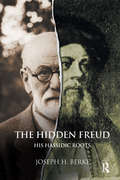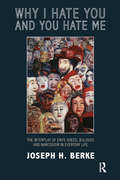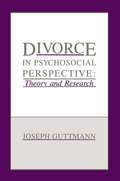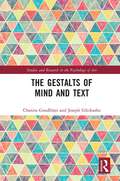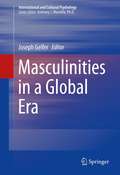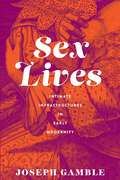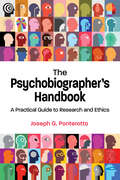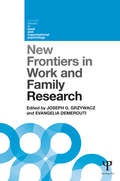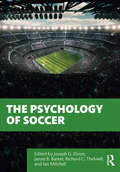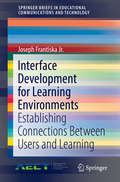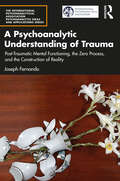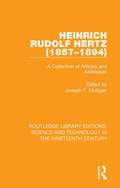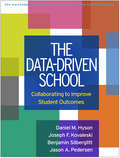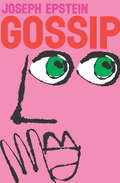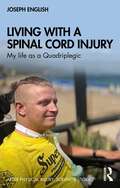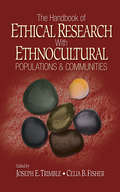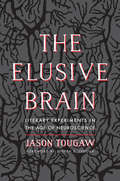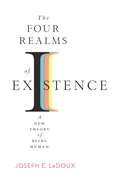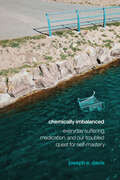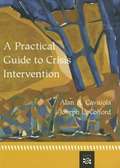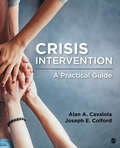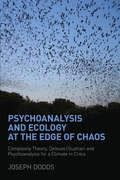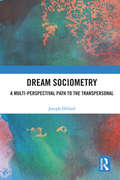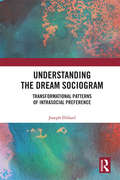- Table View
- List View
The Hidden Freud: His Hassidic Roots
by Joseph H. BerkeThis book explores Sigmund Freud and his Jewish roots and demonstrates the input of the Jewish mystical tradition into Western culture via psychoanalysis. It shows in particular how the ideas of Kabbalah and Hassidism have profoundly influenced and enriched our understanding of mental processes and clinical practices. Freud's own ancestors were hassidim going back many generations, and the book examines how this background influenced both his life and his work. It also shows how he struggled to deny these roots in order to be accepted as a secular, German professional, and at the same time how he used them in the development of his ideas about dreaming, sexuality, depression and mental structures as well as healing practices. The book argues that in many important respects psychoanalysis can be seen as a secular extension of Kabbalah. The author shows, for example, how Freud utilized the Jewish mystical tradition to develop a science of subjectivity.
Why I Hate You and You Hate Me: The Interplay of Envy, Greed, Jealousy and Narcissism in Everyday Life
by Joseph H. BerkeThis book considers the experience of envy, greed, jealousy, and narcissism and how they operate between parents and children, brothers and sisters. It focuses on the object of these harmful emotions, what attracts malice to them, and how they may arouse it.
Divorce in Psychosocial Perspective: Theory and Research
by Joseph GuttmannMany books deal with divorce and its aftermath -- some deal with the impact of divorce on children and families, others with the legal or sociological aspects of divorce, and a few focus on divorced mothers and fathers. Most of these books are characterized by their practical orientation toward the issues and problems posed by divorce. None of these, however, have attempted to offer an integrated view of the massive amount of theoretical and research literature on divorced adults and their children. In addition, none present a comprehensive view of divorce as a psychological process within its larger social context. Filling that void, this book: * offers a comprehensive view of divorce as a social, interpersonal and psychological phenomenon, * reviews the theory and research on divorce focusing on the major protagonists of the divorce drama: the mother, the father and the children, and * introduces a social-psychological theory of divorce process.
The Gestalts of Mind and Text (Studies and Research in the Psychology of Art)
by Chanita Goodblatt Joseph GlicksohnThe Gestalts of Mind and Text bridges literary studies and cognitive psychology to provide a unique contribution to the field of Cognitive Literary Studies. The book presents an investigation of metaphor in poetic texts, adopting and developing empirical methods used by Gestalt Psychology, while integrating concepts informed by Gestalt Psychology. The title indicates an intellectual tradition, to be termed the Gestalt of the Mind, that begins with the Würzburg School of Psychology and its subsequent development into Gestalt Psychology, which provides a rich heritage for the field of Cognitive Literary Studies. The title further indicates an intellectual and creative tradition, to be termed the Gestalt of the Text, applied to various literary schools (Medieval, Early Modern, Modernist). Finally, the Gestalt-Interaction Theory of Metaphor delineates the potentialities for different types of readings of poetic metaphor. This book further makes three significant contributions: the first is the focus on the empirical investigation of metaphor in poetic texts; the second is the integration of the aspects of problem-solving, bidirectionality of metaphor, embodied cognition and the grotesque, in analyzing poetic texts and verbal protocols; and the third is the focus on various literary traditions, spanning languages and periods. The goal of this book is to present an interdisciplinary study of the Gestalts of Mind and Text. This will be of interest to a varied audience, including cognitive psychologists, literary scholars, researchers in aesthetics, scholars of metaphor and those with an interest in intellectual history.
Masculinities in a Global Era
by Joseph GelferMasculinities in a Global Era extends the conversation of masculinity studies by analyzing global masculinities from a psychological perspective. Canvassing a broad array of psychological aspects such as the construction of identity, the negotiation of power, coping with trauma, and sexuality, this volume shows how masculinities are experienced, performed and embodied in geographically dispersed communities. Importantly, Masculinities in a Global Era fulfills a much-needed but elusive need within the study of masculinities: a forum in which the often polarized approaches of pro-feminists and men's rights advocates can begin to move beyond their entrenched historical positions towards a more fruitful and nuanced future.
Sex Lives: Intimate Infrastructures in Early Modernity
by Joseph GambleIn Sex Lives, Joseph Gamble draws from literature, art, and personal testimonies from sixteenth- and seventeenth-century Europe to uncover how early moderns learned to have sex. In the early modern period, Gamble contends, everyone from pornographers to Shakespeare recognized that sex requires knowledge of both logistics (how to do it) and affect (how to feel about it). And knowledge, of course, takes practice.Gamble turns to a wide range of early modern texts and images from England, France, and Italy, ranging from personal accounts to closet dramas to visual art in order to excavate and analyze a variety of sexual practices in early modernity. Using an intersectional, phenomenological approach to bring historical light to the quotidian sexual experiences of early modern subjects, the book develops the critical concept of the “sex life”—a colloquialism that opens up methodological avenues for understanding daily lived experience in granular detail, both in the distant past and today. Through this lens, Gamble explores how sex organized and permeated everyday life and experiences of gender and race in early modernity. He shows how affects around sex structure the plays of Shakespeare and his contemporaries, revealing the role of sexual feeling and sexual racism in early modern English drama.Sex Lives reshapes how we understand Renaissance literature, the history of sexuality, and the meaning of sex in both early modern Europe and our own moment.
The Psychobiographer's Handbook: A Practical Guide to Research and Ethics
by Joseph G. PonterottoA practical guide to conducting psychobiography, including the theory, methods, and ethical considerations required for research and writing.
New Frontiers in Work and Family Research
by Joseph G. Grzywacz and Evangelia DemeroutiThe purpose of this volume is to showcase alternative theoretical and methodological approaches to work and family research, and present methodological alternatives to the widely known shortcomings of current research on work and the family. In the first part of the book contributors consider various theoretical perspectives including: Positive Organizational Psychology System Theory Multi-Level Theoretical Models Dyadic Study Designs The chapters in Part Two consider a number of methodological issues including: key issues pertaining to sampling, the role of diary studies, Case Cross-over designs, Biomarkers, and Cross-Domain and Within-Domain Relations. Contributors also elaborate the conceptual and logistical issues involved in incorporating novel measurement approaches. The book will be of essential reading for researchers and students in work and organizational psychology, and related disciplines.
Psychology in Elite Soccer: More Than Just a Game
by Joseph G. DixonSports psychology; exploring the effects of psychological interventions on important performance-related outcomes, has become ever more popular and prevalent within elite level soccer clubs in the past decade as teams look to gain psychological as well as physiological advantages over their competitors. Psychology in Elite Soccer; More Than Just a Game seeks to present ta detailed understanding of the theories underpinning the psychological issues relating to soccer along with practical insights into effective psychological interventions and strategies This book uses contemporary theory and research to elucidate key concepts and applied interventions and will include world-leading expert commentaries of contemporary theoretical and applied approaches in understanding critical issues in soccer along with providing practical implications and insights into working effectively in soccer-related contexts. Psychology in Elite Soccer; More Than Just a Game is an evidence-based resource to guide research and facilitate practice and will be a vital resource for researchers, practitioners and coaches within the area of sport psychology and related disciplines.
Interface Development for Learning Environments: Establishing Connections Between Users and Learning (SpringerBriefs in Educational Communications and Technology)
by Joseph Frantiska Jr.This brief will examine and explore some tools and techniques that can be used to develop interfaces for learning environments. Interface design has been a topic in software engineering for many years. The advent of graphical user interfaces has created many remedies and challenges for the software engineer. In recent years with an increased emphasis in educational technology, instructional designers are also included in this arena. The interface can be a driver in terms of a learning environment’s ability to engage a student. It can also provide a point of information exchange and therefore learning between the student and the environment’s software. Thus, the issue of an interface is vital to the success of a learning environment. This brief will produce a variety of interfaces for various environments to allow the designer to contrast and compare them based upon the required purpose. The designer will have a toolkit filled with tools and techniques which will allow for interfaces that will engage the student and facilitate their learning. The primary audiences are K-12 and post-secondary educators who desire to create digital media based educational materials.
A Psychoanalytic Understanding of Trauma: Post-Traumatic Mental Functioning, the Zero Process, and the Construction of Reality (The International Psychoanalytical Association Psychoanalytic Ideas and Applications Series)
by Joseph FernandoA Psychoanalytic Understanding of Trauma presents a theory of the nature of trauma and post-traumatic mental functioning based on the concept of the ‘zero process’. Joseph Fernando presents a novel, comprehensive, and clinically useful theory of trauma. The author first presents theories of trauma and describes the zero process, related to the breakdown of various ego functions, such as memory and integration, during trauma. Rather than replacing Freud’s ideas of the primary process and repression, Fernando expands on the idea of the mind to include both types of functioning, identifies how they can be differentiated, and examines the different therapeutic techniques they require. He also considers how trauma impacts the construction of reality, the role of human development, the relation of trauma and borderline disorders, and the development of therapeutic technique. Through the unique illustration and narration of cases of three patients, Fernando presents conceptual and clinical innovations. A Psychoanalytic Understanding of Trauma will be of great interest to psychoanalysts and psychoanalytic psychotherapists in practice and in training.
Heinrich Rudolf Hertz: A Collection of Articles and Addresses (Routledge Library Editions: Science and Technology in the Nineteenth Century #6)
by Joseph F. MulliganThis book, first available in 1994, was published to commemorate the one-hundredth anniversary of Heinrich Hertz’s death at the terribly young age of thirty-six. The introductory biography together with eleven papers by Hertz and seven about him are intended to highlight the importance of Hertz’s contributions to physics and at the same time to serve the needs of anyone interested in doing research on this highly gifted scientist.
The Data-Driven School: Collaborating to Improve Student Outcomes (The Guilford Practical Intervention in the Schools Series)
by Daniel M. Hyson Joseph F. Kovaleski Benjamin Silberglitt PhD Jason A. PedersenThis indispensable practitioner's guide helps to build the capacity of school psychologists, administrators, and teachers to use data in collaborative decision making. It presents an applied, step-by-step approach for creating and running effective data teams within a problem-solving framework. The authors describe innovative ways to improve academic and behavioral outcomes at the individual, class, grade, school, and district levels. Applications of readily available technology tools are highlighted. In a large-size format with lay-flat binding for easy photocopying, the book includes learning activities and helpful reproducible forms. Purchasers can download and print the reproducible forms, as well as access Excel spreadsheets and PowerPoint slides related to the book, at the companion website. This book is in The Guilford Practical Intervention in the Schools Series, edited by Sandra M. Chafouleas.
Gossip: The Untrivial Pursuit
by Joseph EpsteinA look at the delights—and dangers—of gossip, from a New York Times–bestselling, &“erudite writer, gifted with rare insight and a wry sense of humor&” (USA Today). Gossip is no trivial matter. In this enlightening and entertaining study, the author of Snobbery takes a look at a human activity that may be looked down upon, but nevertheless plays a persistent role in our society—and therefore, must be taken seriously. Joseph Epstein, who admits to indulging in this activity himself from time to time, serves up mini-biographies of history&’s famous gossips, and makes a powerful case that gossip has morphed from its old-fashioned best—clever, mocking, a great private pleasure—to a corrosive, destructive new version, thanks to the reach of the mass media and the Internet. This is an erudite and witty read from &“a master observer of humanity&’s foibles&” (Kirkus Reviews, starred review). &“Epstein defines categories of gossip, from personal to celebrity, workplace, and political, and discusses how gossip &‘enforces a community&’s norms&’ or, conversely, helps foster tolerance. . . . In his briskly erudite, zestfully original, and provokingly enjoyable anatomy of gossip, Epstein revels in the risky collusion of gossip within shared worlds and resoundingly condemns media-disseminated gossip that diminishes our ability to ascertain or value the truth.&” —Booklist
Living with a Spinal Cord Injury: My life as a Quadriplegic
by Joseph EnglishJoseph English was living his best life when a car accident changed everything. He suffered life changing injuries, and the doctors told him there was no chance of recovery. Facing life as a quadriplegic, Joe lost his business, his romantic partner, and, for a while, his will to carry on. His story, told with extensive contributions from his family and friends, charts his journey from being dead at the roadside to finding something to live for as he recounts his progress from injury to survival. With absolute candour, Joe tells the whole story of his accident, his rehabilitation, and his recovery. Full of advice and suggestions from professionals in the rehabilitation journey, this book is remarkably frank about the struggles Joe has endured, and the times when he felt as if life wasn’t worth living. It addresses all the most difficult issues around life after paralysis, including loss of identity and letting go of the past, as well as providing practical information on topics such as assistive technology, financial claims and legal support. It also outlines the various roles of those in the rehabilitation team. His doctors and specialist practitioners give their unique perspectives into their processes and procedures, helping to demystify them, while Joe’s family and friends ask the kinds of questions readers will be asking too, making this an invaluable guide to what to expect for anyone going through a similar experience. The book shows – by lived example – that there is always more to live for. It is essential reading for those with paraplegia, quadriplegia and other spinal injuries, and their families, friends and care-givers. It is also valuable for neuropsychologists, neurologists and other rehabilitation therapists, as well as students in medicine, nursing, allied health and neuropsychology.
The Handbook of Ethical Research with Ethnocultural Populations and Communities
by Joseph E. Trimble Dr Celia B. FisherThe Handbook of Ethical Research With Ethnocultural Populations and Communities, edited by Joseph E. Trimble and Celia B. Fisher, addressES key questions in the first major work to focus specifically on ethical issues involving work with ethnocultural populations. Filling gaps and questions left unanswered by general rules of scientific conduct such as those embodied in federal regulations and professional codes, this Handbook will help guide ethical decision making for social and behavioral science research with multicultural groups for years to come.
Elusive Brain: Literary Experiments in the Age of Neuroscience
by Jason Tougaw Joseph E. LeDouxFeaturing a foreword by renowned neuroscientist Joseph E. LeDoux, The Elusive Brain is an illuminating, comprehensive survey of contemporary literature’s engagement with neuroscience. This fascinating book explores how literature interacts with neuroscience to provide a better understanding of the brain’s relationship to the self. Jason Tougaw surveys the work of contemporary writers—including Oliver Sacks, Temple Grandin, Richard Powers, Siri Hustvedt, and Tito Rajarshi Mukhopadhyay—analyzing the way they experiment with literary forms to frame new views of the immaterial experiences that compose a self. He argues that their work offers a necessary counterbalance to a wider cultural neuromania that seeks out purely neural explanations for human behaviors as varied as reading, economics, empathy, and racism. Building on recent scholarship, Tougaw’s evenhanded account will be an original contribution to the growing field of neuroscience and literature.
The Four Realms of Existence: A New Theory of Being Human
by Joseph E. LeDouxOne of the world’s leading experts on mind and brain takes us on an expedition that reveals a new view of what makes us who we are.Humans have long thought of their bodies and minds as separate spheres of existence. The body is physical—the source of aches and pains. But the mind is mental; it perceives, remembers, believes, feels, and imagines. Although modern science has largely eliminated this mind-body dualism, people still tend to imagine their minds as separate from their physical being. Even in research, the notion of the “self” as somehow distinct from the rest of the organism persists.Joseph LeDoux argues that we have hit an epistemological wall—that ideas like the self are increasingly barriers to discovery and understanding. He offers a new framework of who we are, theorizing four realms of existence—bodily, neural, cognitive, and conscious.The biological realm makes life possible. Hence, every living thing exists biologically. Animals, uniquely, supplement biological existence with a nervous system. This neural component enables them to control their bodies with speed and precision unseen in other forms of life. Some animals with nervous systems possess a cognitive realm, which allows the creation of internal representations of the world around them. These mental models are used to control a wide range of behaviors. Finally, the conscious realm allows its possessors to have inner experiences of, and thoughts about, the world.Together, LeDoux shows, these four realms make humans who and what we are. They cooperate continuously and underlie our capacity to live and experience ourselves as beings with a past, present, and future. The result, LeDoux shows, is not a self but an “ensemble of being” that subsumes our entire human existence, both as individuals and as a species.
Chemically Imbalanced: Everyday Suffering, Medication, and Our Troubled Quest for Self-Mastery
by Joseph E. DavisA study of how ordinary people deal with everyday problems through self-mastery and mental health care practices.Everyday suffering—those conditions or feelings brought on by trying circumstances that arise in everyone’s lives—is something that humans have grappled with for millennia. But the last decades have seen a drastic change in the way we approach it. In the past, a person going through a time of difficulty might keep a journal or see a therapist, but now the psychological has been replaced by the biological: instead of treating the heart, soul, and mind, we take a pill to treat the brain.Chemically Imbalanced is a field report on how ordinary people dealing with common problems explain their suffering, how they’re increasingly turning to the thin and mechanistic language of the “body/brain,” and what these encounters might tell us. Drawing on interviews with people dealing with struggles such as underperformance in school or work, grief after the end of a relationship, or disappointment with how their life is unfolding, Joseph E. Davis reveals the profound revolution in consciousness that is underway. We now see suffering as an imbalance in the brain that needs to be fixed, usually through chemical means. This has rippled into our social and cultural conversations, and it has affected how we, as a society, imagine ourselves and envision what constitutes a good life. Davis warns that what we envision as a neurological revolution, in which suffering is a mechanistic problem, has troubling and entrapping consequences. And he makes the case that by turning away from an interpretive, meaning-making view of ourselves, we thwart our chances to enrich our souls and learn important truths about ourselves and the social conditions under which we live.Praise for Chemically Imbalanced“Chemically Imbalanced is an excellent addition to the works in social sciences and humanities that examine the distress of ordinary Americans from the second half of the twentieth century onward, a period when commercialized pills and the psychology-based notion of self-improvement entered the minds of Americans.” —Metascience“Chemically Imbalanced raises important questions, offers new insight into the power and reach of the biomedical model and neurobiological thinking, and I highly recommend it. I encourage readers to assign it, especially in graduate-level mental health and illness classes—or any class looking for a discussion on people’s experiences with suffering and the broad impacts of biomedical thinking and treatment.” —Social Forces
A Practical Guide To Crisis Intervention
by Alan Cavaiola Joseph E. ColfordDesigned for students in counseling, psychology, social work, and human services, as well as crisis workers in-training, this text combines a general introduction to crisis theory and intervention with practical strategies for counseling crisis victims. The L-A-P-C model--a simple yet effective set of intervention techniques applicable to any type of crisis situation by crisis workers at any level of experience, is introduced in Chapter 2. Characteristics of effective crisis counseling and an overview of other theoretical intervention models are also presented throughout the text.
Crisis Intervention: A Practical Guide (Crisis Intervention Ser.)
by Joseph E. Colford Alan A. CavaiolaCrisis Intervention takes into account various environments and populations across the lifespan to provide students with practical guidelines for managing crises. Drawing on over 25 years of relevant experience, authors Alan A. Cavaiola and Joseph E. Colford cover several different types of crises frequently encountered by professionals in medical, school, work, and community settings. Models for effectively managing these crises are presented along with the authors’ own step-by-step approach, the Listen–Assess–Plan–Commit (LAPC) model, giving students the freedom to select a model that best fits their personal style or a given crisis. Future mental health professionals will gain the knowledge, skills, and confidence to help their clients manage the crises they will encounter in their day-to-day lives.
Crisis Intervention: A Practical Guide (Crisis Intervention Ser.)
by Joseph E. Colford Alan A. CavaiolaCrisis Intervention takes into account various environments and populations across the lifespan to provide students with practical guidelines for managing crises. Drawing on over 25 years of relevant experience, authors Alan A. Cavaiola and Joseph E. Colford cover several different types of crises frequently encountered by professionals in medical, school, work, and community settings. Models for effectively managing these crises are presented along with the authors’ own step-by-step approach, the Listen–Assess–Plan–Commit (LAPC) model, giving students the freedom to select a model that best fits their personal style or a given crisis. Future mental health professionals will gain the knowledge, skills, and confidence to help their clients manage the crises they will encounter in their day-to-day lives.
Psychoanalysis and Ecology at the Edge of Chaos: Complexity Theory, Deleuze,Guattari and Psychoanalysis for a Climate in Crisis
by Joseph DoddsThis book argues that psychoanalysis has a unique role to play in the climate change debate through its placing emphasis on the unconscious dimensions of our mental and social lives. Exploring contributions from Freudian, Kleinian, Object Relations, Self Psychology, Jungian, and Lacanian traditions, the book discusses how psychoanalysis can help to unmask the anxieties, deficits, conflicts, phantasies and defences crucial in understanding the human dimension of the ecological crisis. Yet despite being essential to studying environmentalism and its discontents, psychoanalysis still remains largely a 'psychology without ecology.' The philosophy of Deleuze and Guattari, combined with new developments in the sciences of complexity, help us to build upon the best of these perspectives, providing a framework able to integrate Guattari's 'three ecologies' of mind, nature and society. This book thus constitutes a timely attempt to contribute towards a critical dialogue between psychoanalysis and ecology. Further topics of discussion include: ecopsychology and the greening of psychotherapy our ambivalent relationship to nature and the non-human complexity theory in psychoanalysis and ecology defence mechanisms against eco-anxiety and eco-grief Deleuze|Guattari and the three ecologies becoming-animal in horror and eco-apocalypse in science fiction films nonlinear ecopsychoanalysis. In our era of anxiety, denial, paranoia, apathy, guilt, hope, and despair in the face of climate change, this book offers a fresh and insightful psychoanalytic perspective on the ecological crisis. As such this book will be of great interest to all those in the fields of psychoanalysis, psychology, philosophy, and ecology, as well as all who are concerned with the global environmental challenges affecting our planet's future.
Dream Sociometry: A Multi-Perspectival Path to the Transpersonal
by Joseph DillardThis unique book is the first of two volumes that describe a new, transpersonal model for therapeutic work on dreams. Dream Sociometry, a form of Integral Deep Listening (IDL) life drama and dream character interviewing, contributes to the fields of application of the sociometric methods of J.L. Moreno and the use of sociometry in therapy, to support and direct personal development. The book describes an experiential, multi-perspectival integral life practice through accessing "emerging potentials," or perspectives that integrate, transcend, and include one's current context and predicament. Dream Sociometry provides a thoroughly phenomenological approach, suspending interpretation as well as assumptions about the reality and usefulness of synchronicities, mystical experiences, waking accidents, dreams, and nightmares, in favour of listening to dream characters and personifications of important life issues in a respectful and integral way. It thereby provides an important doorway to both causal and non-dual awareness by accessing perspectives that personify both, and will open doors for those interested not only in dream research, but in reducing anxiety disorders, such as phobias and post-traumatic stress disorders, and seeing through the often literal and concrete interpretations that we often give both physical and mental illness as well as mystical experiences. Offering a fresh and unique approach to both dreamwork and self-development through sociometric methodologies, this book will be of interest to researchers in the fields of psychodrama, sociometry, group psychotherapy, transpersonal, experiential and action therapies, as well as postgraduate students studying psychology and sociology.
Understanding the Dream Sociogram: Transformational Patterns of Intrasocial Preference
by Joseph DillardUnderstanding the Dream Sociogram, the complementary volume to Dream Sociometry, explains how to take sociometric data from dreams and life issues and create a Dream Sociogram, to reveal patterns of intrasocial dynamics that clarify conflicts and reveal pathways to transformation. By identifying collectives of emerging potentials, or perspectives and relationships that are attempting to manifest higher order integration, this book teaches readers to stand back from personal and societal dramas and discover creative contexts that show an effective way forward. Unique in its approach to analysing dreams, the book introduces a methodology that teaches multi-perspectivalism as a way of resolving pressing life issues. It argues that humans, as naturally psychologically geocentric, need to evolve into a multi-perspectival world view and understanding of self. Exploring how to use the sociogram to deepen this understanding, the book offers practical examples and detailed real-life applications. Its integral and transpersonal applications of Moreno’s sociometry are novel and substantive in their addition to this field of research. The transpersonal results can be effective in reducing anxiety-based disorders, nightmares and phobias, as well as post-traumatic stress disorder and depression. As such, this book will be of interest to researchers in the fields of psychodrama, sociometry, group psychotherapy, transpersonal, experiential and action therapies, as well as postgraduate students studying psychology and sociology.
